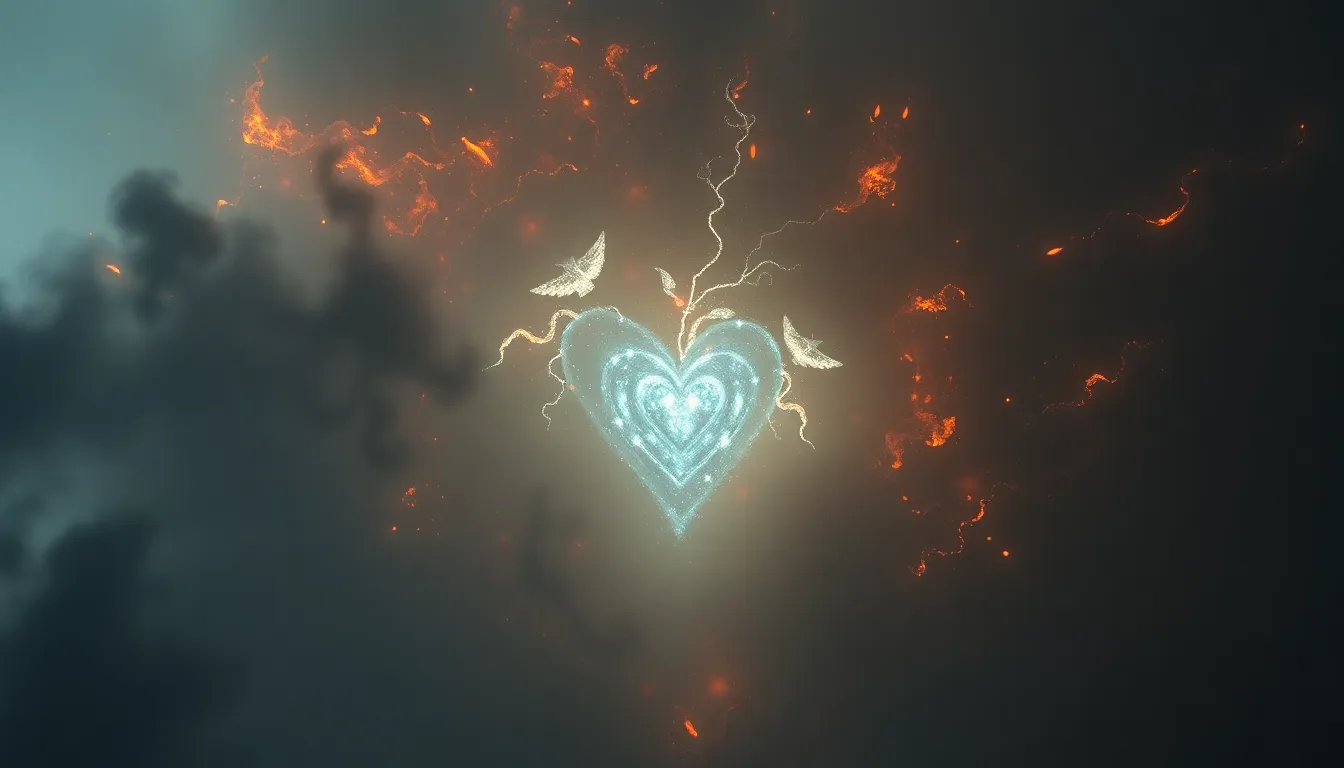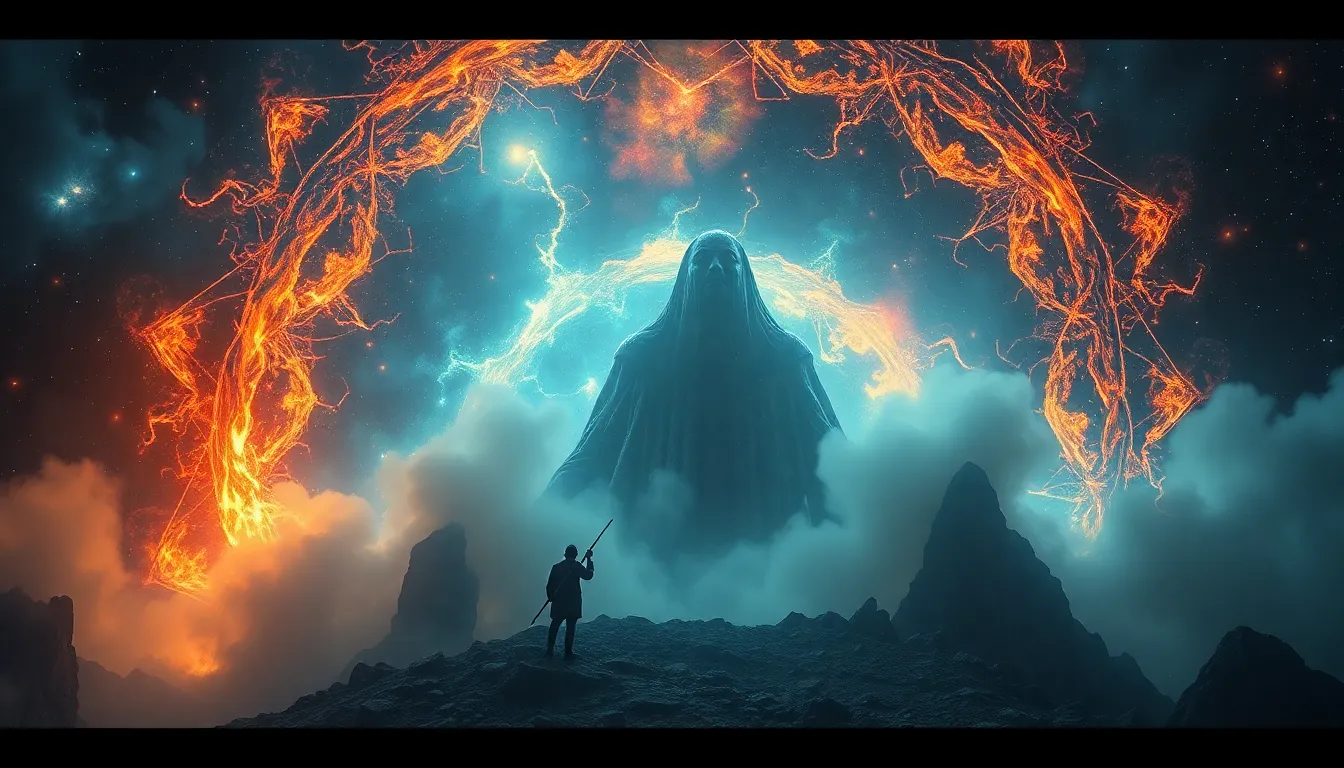The Heart’s Echo: How Myths Resonate Across Time and Space
Introduction: The Universal Language of Myths
Myths have been an integral part of human culture since the dawn of civilization. They are more than just stories; they are the narratives that shape our understanding of the world, our place within it, and the values we hold dear. Defined as traditional stories that explain natural or social phenomena, myths often involve supernatural beings or events and serve to convey moral lessons or cultural truths. This article explores how myths resonate across time and space, revealing their significance in connecting humanity through shared experiences and universal themes.
The Nature of Myths: Definition and Function
At their core, myths are narratives that convey the beliefs, values, and traditions of a culture. They serve multiple functions in society, including:
- Education: Myths often provide moral lessons and guidance on how to behave in society.
- Entertainment: The captivating nature of myths engages audiences and preserves storytelling traditions.
- Cultural Identity: Myths contribute to a community’s identity, reinforcing shared beliefs and customs.
- Explaining the Unexplainable: Myths often address fundamental questions about existence, creation, and the nature of humanity.
Through these functions, myths not only entertain but also educate and unify communities, making them essential to cultural heritage.
Cultural Context: Myths in Different Societies
Myths vary significantly across cultures, reflecting the unique histories and values of each society. For example:
- Greek Myths: Often feature gods and goddesses who interact with humans, illustrating human virtues and vices.
- Norse Myths: Center around themes of fate and heroism, with a pantheon that reflects the harsh realities of life in Scandinavia.
- Indigenous Myths: Frequently convey deep connections to nature and the land, emphasizing harmony and respect for the environment.
- Eastern Myths: Such as those from Hinduism and Buddhism, often explore concepts of reincarnation, karma, and the pursuit of enlightenment.
Cultural context shapes the themes and narratives of myths, leading to a rich tapestry of stories that reflect the diversity of human experience.
Shared Themes: Common Threads in Global Mythology
Despite the diversity of myths, certain themes recur across various cultures, indicating shared human concerns and experiences. Common motifs include:
- Creation Myths: Stories explaining the origins of the world and humanity.
- The Hero’s Journey: A narrative arc where a hero embarks on an adventure, faces challenges, and returns transformed.
- Good vs. Evil: The struggle between benevolent and malevolent forces, often symbolizing moral dilemmas.
These universal themes resonate with human experiences, reflecting our collective search for meaning, understanding, and moral guidance.
The Evolution of Myths: Adaptation and Transformation
Myths are not static; they evolve and adapt over time to reflect changing cultural contexts. For instance, the story of the flood is found in various cultures:
- The Epic of Gilgamesh: Features a great flood as a punishment from the gods.
- The Biblical Noah’s Ark: Tells of Noah saving animals from a divine deluge.
- Indigenous Flood Myths: Often reflect spiritual teachings and the importance of harmony with nature.
These adaptations show how myths can convey similar messages while being shaped by distinct cultural perspectives.
Myths and Psychological Resonance: Jungian Archetypes
Psychologist Carl Jung proposed that myths tap into archetypes within the collective unconscious, universal symbols that resonate across cultures. These archetypes include:
- The Hero: Represents courage and the journey of self-discovery.
- The Mother: Symbolizes nurturing and unconditional love.
- The Trickster: Embodies chaos and change, often challenging societal norms.
By resonating with these archetypes, myths speak to deep psychological truths and human experiences, allowing individuals to connect with their inner selves and the world around them.
Modern Adaptations: Myths in Contemporary Culture
In today’s world, ancient myths continue to inspire modern literature, film, and art. Contemporary adaptations often reinterpret mythological themes for new audiences. Examples include:
- Graphic Novels: Works like “Sandman” by Neil Gaiman draw heavily on mythological elements.
- Movies: Films such as “Thor” and “Wonder Woman” explore mythological figures in modern settings.
- Video Games: Titles like “God of War” integrate mythological narratives into interactive storytelling.
These adaptations highlight the enduring relevance of myths and their ability to evolve while retaining their core messages.
The Role of Myths in Identity and Community Building
Myths play a crucial role in shaping identity and fostering community. They provide a shared narrative that helps individuals connect with their cultural heritage and create a sense of belonging. Myths can:
- Strengthen Community Bonds: Shared myths create a common understanding and foster unity.
- Facilitate Cultural Transmission: Myths are passed down through generations, preserving history and traditions.
- Encourage Civic Responsibility: Myths often convey moral lessons that encourage individuals to act in the best interest of their community.
Through these functions, myths serve as a glue that binds communities together, reinforcing shared values and beliefs.
The Future of Myths: Preservation and Innovation
As globalization spreads, myths face challenges such as cultural appropriation and the loss of traditional narratives. However, there is potential for new myths to emerge in response to contemporary issues, addressing themes such as:
- Climate Change: New narratives that emphasize environmental stewardship and sustainability.
- Technology and Humanity: Myths exploring the relationship between humans and technology.
- Social Justice: Stories that advocate for equality and address systemic issues.
Preserving traditional myths while allowing for innovation will be crucial in maintaining their relevance in an ever-changing world.
Conclusion: The Enduring Echo of Myths in Human Experience
Myths are timeless narratives that resonate across generations, reflecting the shared experiences and values of humanity. They connect us to our past, inform our present, and guide our future. Recognizing the significance of myths allows us to appreciate the richness of human culture and the universal themes that unite us all. In a world that often feels divided, the echoes of myths remind us of our common humanity and the stories that bind us together.


